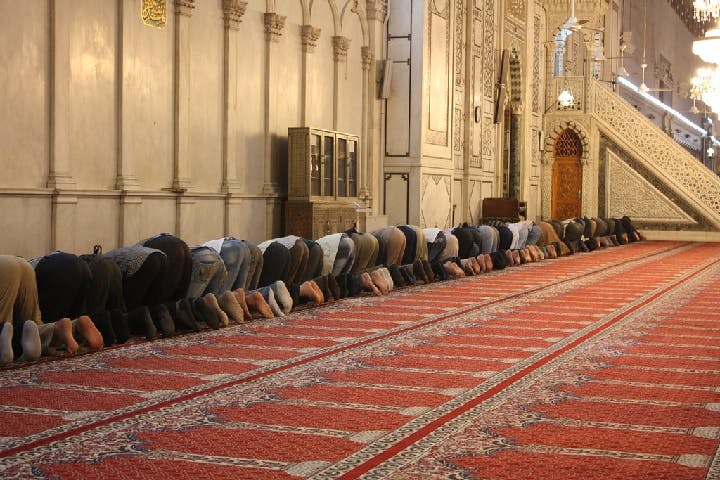Winter 2016
The Evolution of an Islamist
– Marie L. Besançon
Dr. Ghazi Salahuddin Atabani epitomizes an important political evolution that is taking place in the Republic of the Sudan.
Favoring a white turban and the long white cotton tunic, or jalabiya, worn by the northern Sudanese for centuries, Dr. Ghazi Salahuddin Atabani epitomizes an important political evolution that is taking place in the Republic of the Sudan. The country that in many respects pioneered the rise of the Islamic movements that threaten the western world is slowly and painfully evolving into modernity and finding its place in the African and Arab worlds.
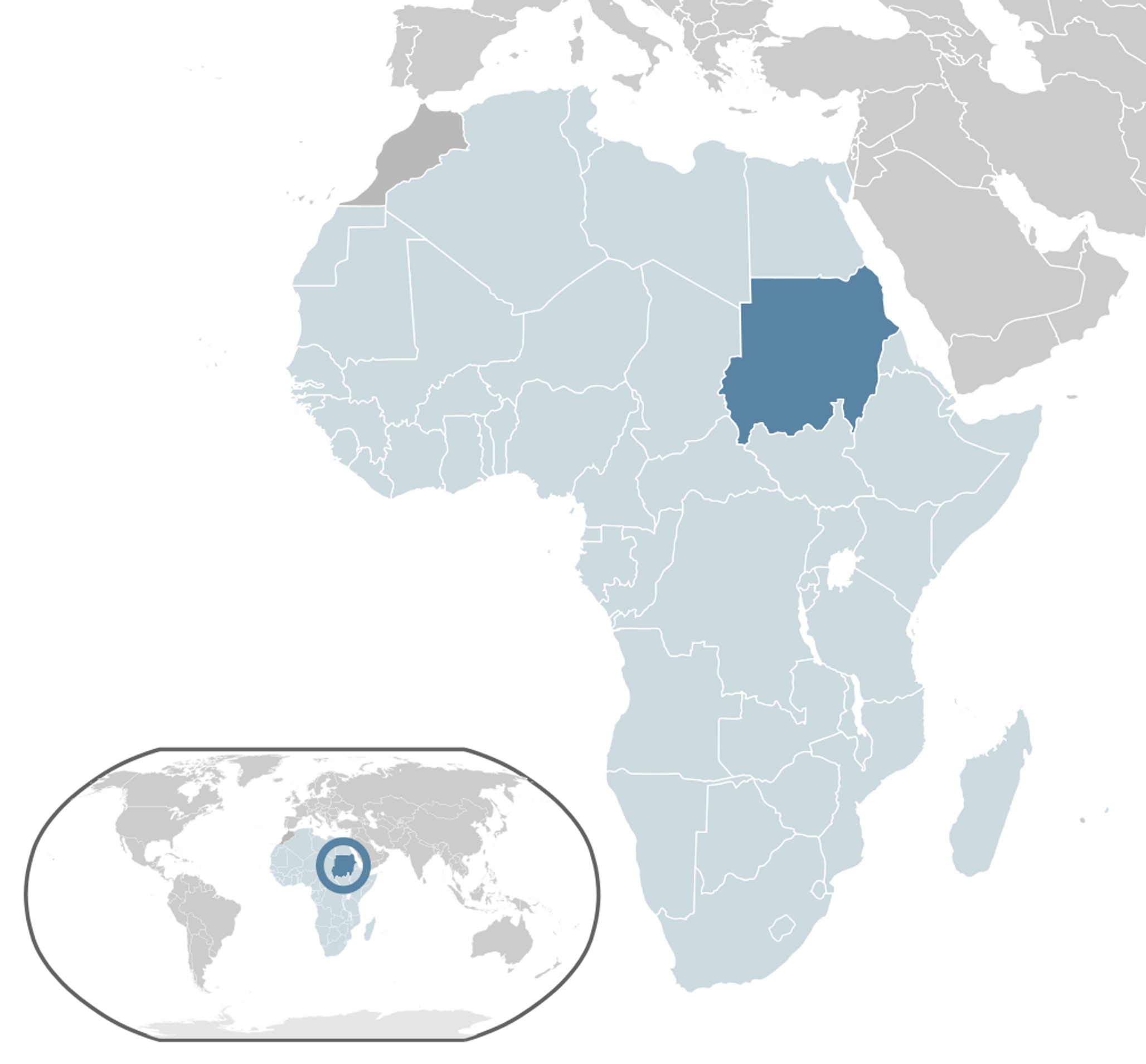
For most of the past 25 years, Ghazi, a thoughtful aristocratic politician with a quick wit, has been part of Sudan’s governing inner circle. He began his political career as a Muslim Brother and protégé of Hassan al-Turabi, the Islamist intellectual who engineered the 1989 coup that placed Omar al-Bashir in the president’s chair. Turabi, who died this year, bears much of the responsibility for the often brutal implementation of Islamic rule in Sudan during the 1990s, as well as for turning Sudan into a haven for Islamic militants and extending the welcome mat to the likes of Hamas, Hezbollah, and Osama bin Laden.
After Bashir rose to power, Ghazi served in several ministerial posts, supported the president’s successful efforts to marginalize Turabi, and was subsequently the majority leader in the Sudanese parliament. Despite being indicted by the International Criminal Court in 2009 for crimes against humanity and genocide in Darfur, Bashir is now one of the longest-serving presidents on the African continent. He has been able to maintain his political control for more than 25 years in part because of the support he has received from Islamist intellectuals like Ghazi. However, times are changing.
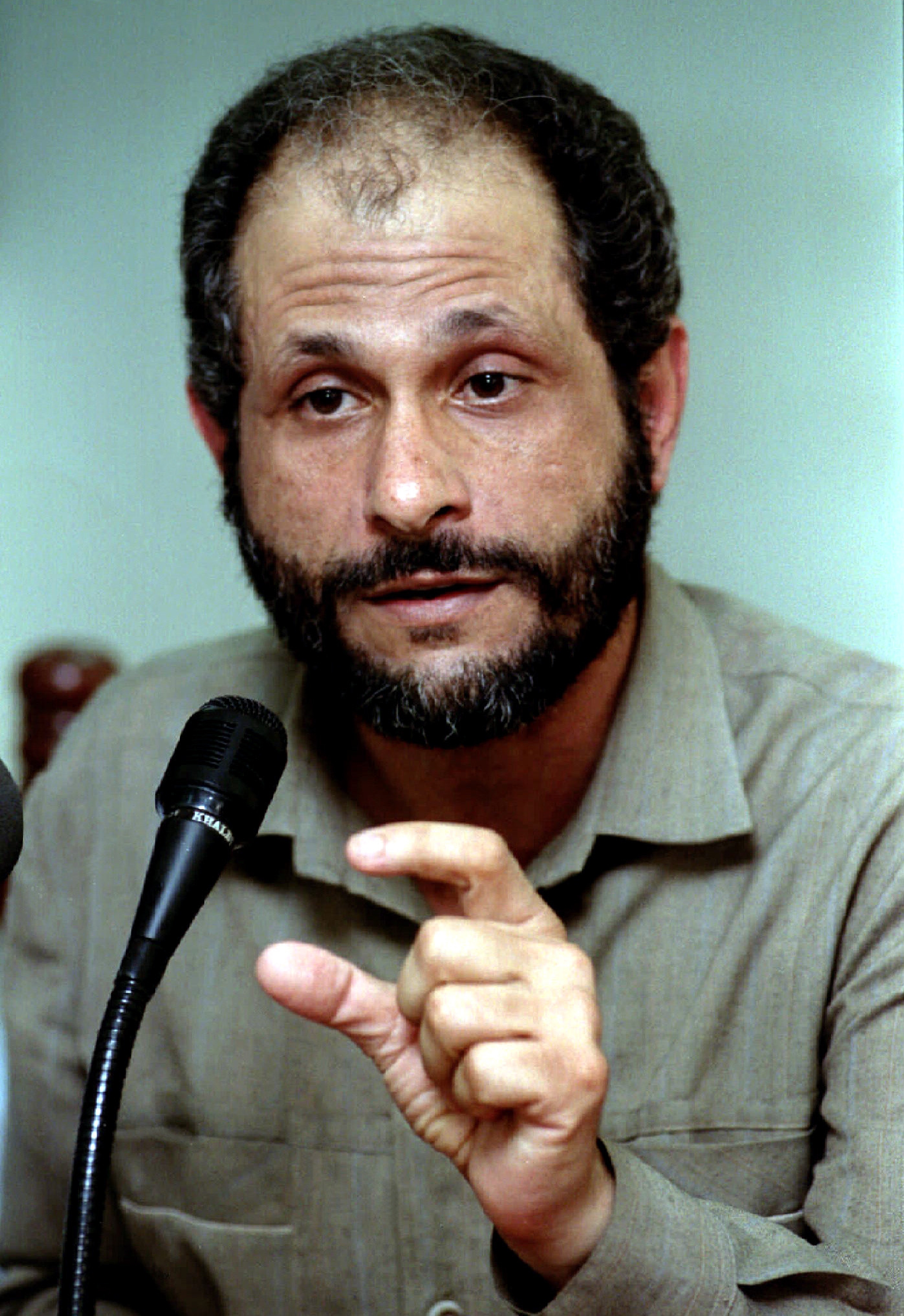
In Sudan, Ghazi is now one of the few politicians widely considered to be an honest broker (though he has his detractors). He heads his own political party, the Reform Now Movement (RNM), and expresses a deep concern for the future of his country. Though personally an Islamist, Ghazi maintains that all are welcome to join the RNM, even secularists. He argues that the government no longer addresses the concerns and needs of the Sudanese people. Some members of the older generations believe that his way of thinking is better than that of the other Muslim Brothers, but pervasive disillusionment with the Muslim Brothers, Islamists, and the government has been a central topic of conversations in Khartoum for years. No one has yet offered a serious alternative or provided a viable vision for the future, but Ghazi is trying to do just that.
In an Islamic nation, principles must be lived up to, and whether or not a government produces justice is more important than what structure that government takes.
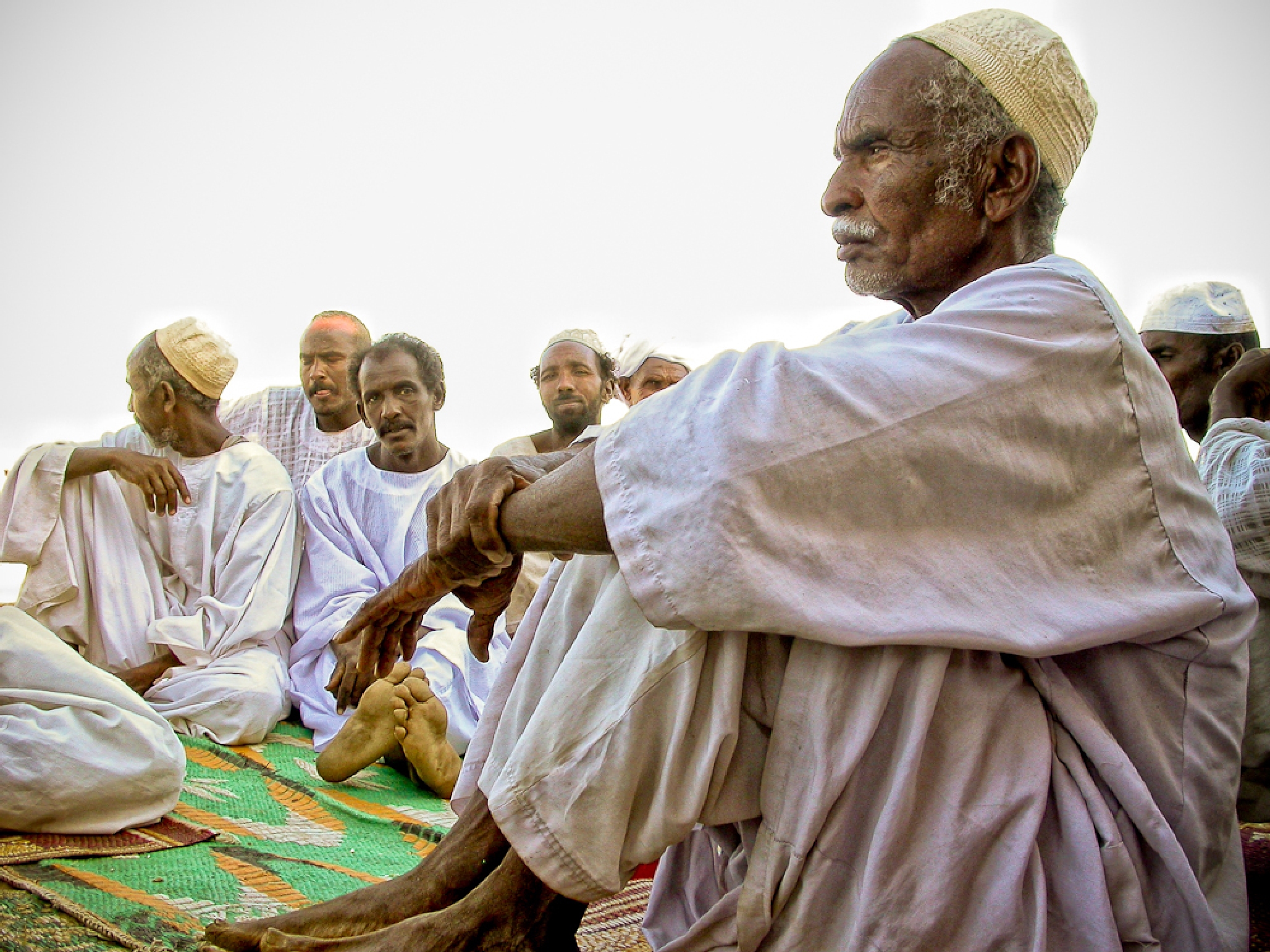
In an Islamic nation, principles must be lived up to, and whether or not a government produces justice is more important than what structure that government takes. Among others, academic Ömer Çaha reaffirmed this position in a 2003 journal article, where he wrote that Islamic theology does not touch on the organizational structure of political governance, but mentions moral principles of justice, compassion, mercy, and obedience to God. As both a religious scholar and political party head, Ghazi believes that Islam does not favor any particular form of government; it is a question for the people to decide depending on the results that a specific type of government yields. Ghazi points out that Sudan has tried the “Westminster” model of government three times, and it did not work; it is the structure of the model, the nature of the Sudanese people, or the historical environment of Sudan itself that made it fail. Personally, Ghazi believes that a modified version of democracy is Sudan’s only viable solution. “Freedom is important as well,” he said in an interview late in 2015, “though people are more likely to give up some of their freedoms before giving up any justice. The Islamists are quite diversified. They may have some basic fundamental beliefs that join them together, but they are different. We must not make the mistake of putting Rached Ghannouchi from Tunisia in the same box as Mohammed Yusuf of Boko Haram; that would be unfair.
From his spiritually formative years — which he spent reading Ibn Ata’ullah, Hassan al-Banna, and Hassan al-Turabi — up to the present day, Ghazi has had a vision for both his life and for the Sudan. As with most visionaries, his life’s events and teachings have engendered evolution and change. From preindependence days, the Atabani family had prominent political roles as members of the Graduates Congress — Britain’s early efforts at crafting a Sudanese parliament — and in the formation of the Unionist Party. The family’s house contained one of the largest libraries in the country, and Ghazi’s father, Salahuddin Atabani, co-founded Al-Ray Al-Aam, one of the major newspapers in Sudan. An agriculture expert by training, Salahuddin directed the cotton-growing schemes in Gezira, rendering Ghazi’s childhood somewhat nomadic, though luxurious and international. (The elder Atabani took his whole family on vacations to Egypt, Ethiopia, and Eritrea, which was unusual for the time.)
First attending Al-Hilaliya Elementary School, then moving to a new school when his father was transferred, young Ghazi was afraid when he arrived as a first-time boarder at the al-Managil Intermediate School. The Atabani household was sumptuously set on a large lot in the agricultural region of Gezira; Ghazi was used to the family chauffeur delivering him to school and returning to fetch him after class was finished. He could not understand why his father was making him board at this new school. Here, most of the children were at least two years too old for the grades they studied; their families depended on them to work the fields, which delayed their schooling. By comparison, Ghazi stood out: he was physically much smaller than most of his classmates, and came from a much wealthier and well-connected family — making him a prime target for bullies.
The opposite of his gregarious father, Ghazi was introverted, quiet, and did not make friends easily. His survival strategy was to adopt a fierce and foreboding look on his face to fend off would-be attackers and to soldier on, hiding his fear and hoping that no one would beat him up. Salahuddin did not want his son to grow up too soft, and he hoped that boarding Ghazi with the children of field workers would toughen him up while exposing him to students from other parts of Sudan.
In the early 1950s, the British-controlled Sudanese government had begun a student-exchange program between Khartoum and the country’s outlying areas. The idea was to cross-pollinate, sending some of the elite Khartoum middle-school students to boarding schools in Kordofan and Gezira to mix with the local children, and for children from the outlying provinces to attend school in Khartoum. One student from Khartoum who later became a permanent undersecretary under President Gaafar Nimeiri recalled in a 2013 interview that his time at boarding school in Kordofan was military-like, miserable, and austere, with a sparse menu of daily fava beans or lentils augmented with some meat stews on occasion. Ghazi’s time at boarding school in the 1960s was similarly miserable. He remembers being hungry most of the time, as the school fare was considerably sparser than what he was used to eating. At the time, he thought that the other students were insufferable brats. Later in life, like many of the exchange students, he could come to appreciate the experience for giving him invaluable life lessons.
At age 14, Ghazi’s life changed suddenly and unexpectedly when his father died of ischemic heart disease. Ghazi’s mother, Thoraya, took her children and moved from Gezira back to the family compound in Khartoum, where Ghazi finished middle school and entered secondary school. Though the task of raising six children on her own was a challenge, Thoraya was fortunate to be supported by her husband’s well-to-do family.
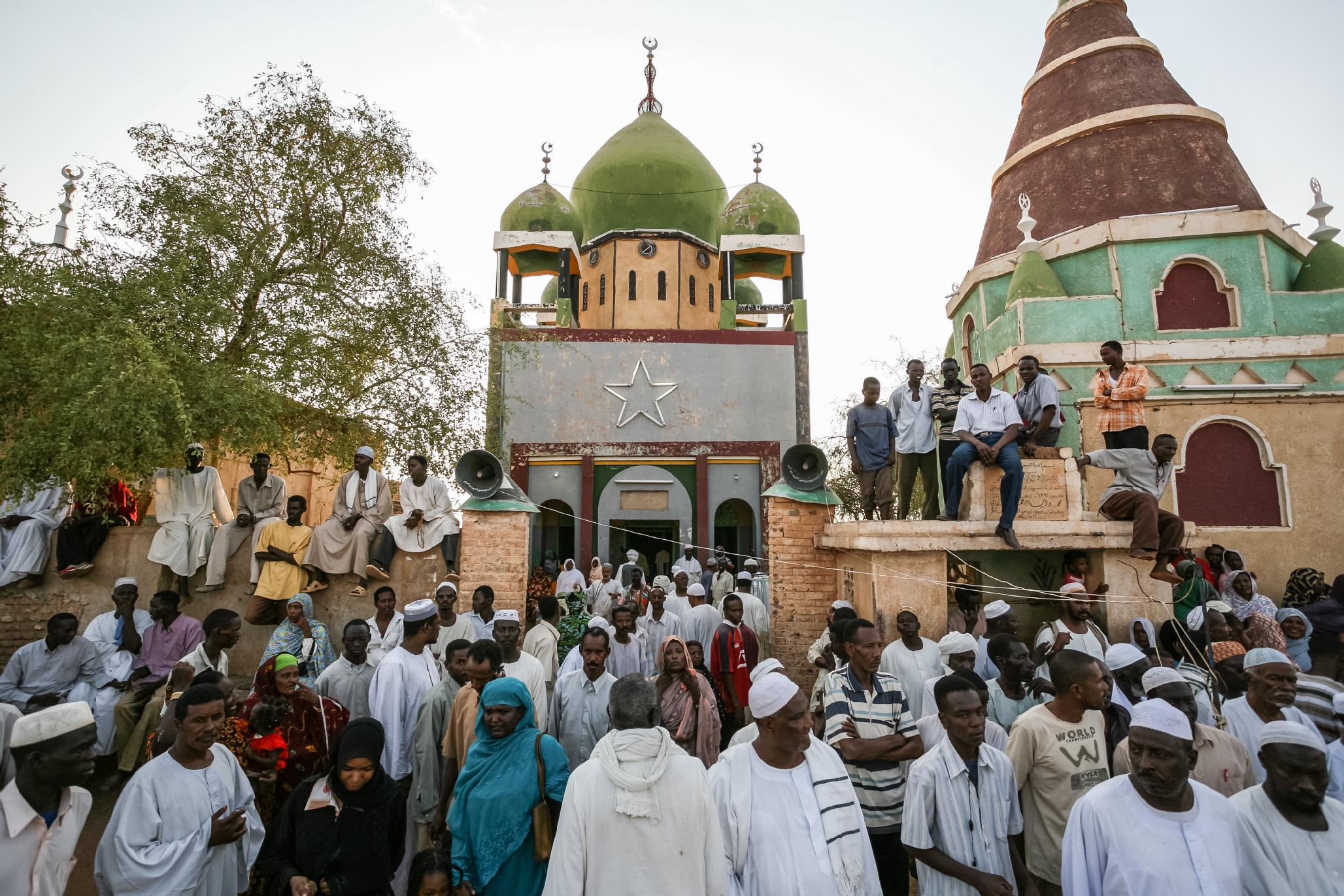
At the Khartoum Secondary School, few students were interested in organized religious activities, though most considered themselves good, practicing Muslims. Out of a class of 30, Ghazi recalls that there was one student who belonged to the Muslim Brothers, an organization that at the time was actively recruiting in area high schools. Because of the boy’s affiliation — or, really, because he was different — the other students gave him a hard time. Though Ghazi’s years at Khartoum Secondary school were less political than those in the high schools in nearby Omdurman — the center of Islamic influence then and now — politically minded teenagers in Khartoum visited the University of Khartoum campus for lectures while still attending high school.
One of the seminal influences on the young students’ thinking was the 1967 Six-Day War, which had erupted three years before Ghazi entered the university.
During the 1960s and 1970s, many University of Khartoum students developed allegiances, as the Islamists and communists competed for recruits to their organizations. One of the seminal influences on the young students’ thinking was the 1967 Six-Day War, which had erupted three years before Ghazi entered the university. During the fight, most Sudanese Muslims were against Israel and advocated taking up arms against it. They did not object to Jews per se; in fact, many Sephardic Jews lived in Sudan and blended in with the Muslim population. (Ghazi’s own father had bought his Khartoum house from a Jewish owner, and had rented it to a Jewish dentist — a man with a German name, possibly a Holocaust survivor, who disappeared shortly after the Six-Day War.) The prevailing thought in Sudan was that the Turks had given away Palestine. But they believed the propaganda spread by Egypt’s President Nasser, and thought that the Arab coalition was winning the war. When the truth of the Israeli victory came out, disappointment, shock, and disillusionment toward Nasser and his dictatorship raged. The Cold War and Arab-Israeli wars set the tone for the intellectual, political, and religious discussions among the students and the intelligentsia. Amid the intense intellectual life under the brick archways of Gordon Memorial College’s historic buildings, the religion-versus-communism debates reigned supreme.
Any student at the University of Khartoum who wished to adhere to Islam and also develop intellectual ideas about its relevancy joined the “Islamic Trend,” a Muslim Brotherhood (or Ikhwan)-aligned group. At the time, both the communists and the Ikhwan were minor movements, dominated by students and similar in structure. They recruited in small cells, communicated in secret, and had a whole infrastructure for propaganda. In Sudan at the time, there was a great deal of agreement between the communists and the Ikhwan on the topics of equality, change, and independence, but the groups’ positions diverged on the subject of God: the Ikhwan took grave issue with communism’s denial of God. Ghazi jumped into the deep end of this milieu, where his intellect and his faith thrived and grew.
In spite of having to endure the sadness of life without his father and the harshness of boarding school, Ghazi’s life had been fairly insular. As a student at the University of Khartoum, he had to adjust to the coeducational medical program. Coming from a pious Muslim family, it was a shock to be in a lab with both women and men viewing unclothed cadavers. Worse yet, were incidents of disrespect from doctors and students toward the cadavers, the sick, and the dying. These experiences pulled Ghazi closer to his religion rather than pushing him away, as it might have done for others. His political beliefs developed on the revivalism of Islam and how it could be relevant to the modern world, while his faith settled on the notion of the oneness and uniqueness of God.
Ghazi said that he very much believed in the principle of the social contract: when you enter a country as a guest, he explained, you are obligated to follow and respect the laws of that country, it is a religious duty and sacrosanct.
He met his wife, Samia, during his postgraduate teaching at the university. She was from a traditional family, the daughter of a prominent Hasaniyya chief from White Nile State — close to the town where Ghazi’s father had been born — yet modern in her access to education. She and Ghazi made a good team. One year after marrying in 1980, Ghazi went to Britain to study for his doctorate in biochemistry at the University of Surrey. In England, he joined the Federation of Student Islamic Societies, an association of individual Muslim student groups from throughout Britain, and soon found himself president after the organization’s leader was unexpectedly called home and resigned the post. During this time, in a conversation with the British ambassador to the Sudan explaining how he could be a good Muslim and a good citizen in Britain; Ghazi said that he very much believed in the principle of the social contract: when you enter a country as a guest, he explained, you are obligated to follow and respect the laws of that country, it is a religious duty and sacrosanct. Ghazi denounces the behavior of Muslims like Abu Hamza al-Masri (the infamous one-eyed Egyptian cleric) who enter liberal democratic countries and abuse their freedoms rather than respecting the social contract. He said that no one has managed to damage the image of Muslims like al-Masri did — that is, perhaps, until the advent of the Islamic State.
As this is a story of an Islamist, it is interesting for us in the West to know how this Sudanese Islamist (and Islamists in general) came to his beliefs both spiritually and politically. This is relevant partially because the main protagonists in Sudan have changed tacks in the wake of obvious miscalculations and redirects after the 1989 Islamic revolution. Some of the Sudanese Islamists have shown more progress and a higher behavior code than those in the Turabi-directed regime, which in the early 1990s harbored some of the world’s most-wanted criminals, including Abu Abbas and Carlos the Jackal; other Islamists have chosen materialistic, autocratic, and corrupt paths while working under the guise of Islam. Among Islamists in the Sudan, such wayward paths have caused widespread disillusionment. Such are the issues that Ghazi’s RNM seeks to address.
Dr. Hassan al-Turabi, the third head of Sudan’s Muslim Brotherhood, did not personally introduce the Brotherhood to Ghazi. Ghazi became one of Turabi’s followers in the years after he attended the University of Khartoum; Ghazi maintains that his allegiance to Turabi was always with reservations. He had many disagreements with Turabi dating back to the early 1970s. Over time, the rift grew. So profound were Ghazi’s disagreements with Turabi’s autocratic methods that he coauthored a famous memorandum condemning Turabi — signed by ten prominent Muslim Brothers who were Turabi’s close supporters — which is thought to have prompted Bashir’s split with Turabi. In the wake of that schism, Ghazi Salahuddin and Ali Osman Taha, long-time disciples of Turabi, shifted their allegiances to Bashir.
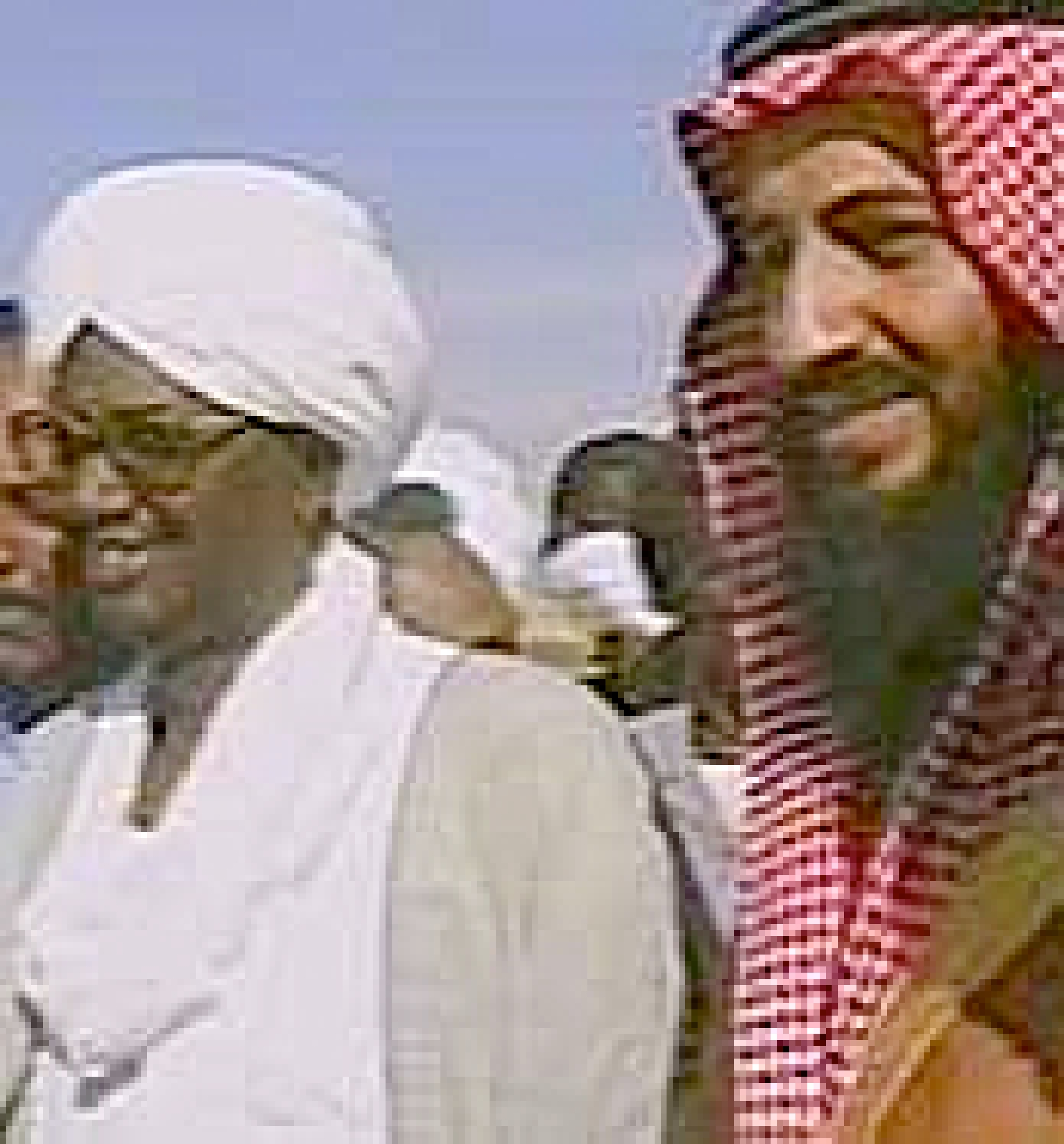
As Turabi had been the one who had invited Osama bin Laden into the country creating irreconcilable differences with the West, the question then arises: what did the other Muslim Brothers have to do with bin Laden? When asked about bin Laden, Ghazi said that he and most of Sudan’s politicians had little to do with the terrorist leader. At the time, bin Laden was a businessman fascinated by economics and with Sudan. He had a plan to grow sunflowers in eastern Sudan as a farming venture, and saw amazing economic potential in the country. In 1994, as Ghazi was a rising star in Sudan’s newly forming political order, he was invited to bin Laden’s house for a discussion. The host wanted to get to know Ghazi and better understand what he was all about. During his meeting with Ghazi, bin Laden did most of the talking. Externally, according to Ghazi, bin Laden was calm and soft spoken, but beneath the equanimity was a determined and focused man. He railed at length about the economics of the United States, and predicted that its economy would implode. His discussion was cordial, but as the topic turned to the issue of democracy, bin Laden made it clear that he directly disagreed with Ghazi. Bin Laden was of the mind that once a leader or caliph was in place, that leader should reign until death. Ghazi favored a democratic system where the country’s leadership had to change.
Ghazi cites the Sudanese ability to compromise as a national treasure. The Sudanese are not extremists like many radical groups in the Middle East and Africa; they value education, and even the country’s poorest spend a great deal of money ensuring that their children have a future.
Twenty-two years later, Ghazi still holds this belief. Nowadays, he cites the Sudanese ability to compromise as a national treasure. The Sudanese are not extremists like many radical groups in the Middle East and Africa; they value education, and even the country’s poorest spend a great deal of money ensuring that their children have a future. Given the right choices and the right positions, Sudan could rise up and be a great force for stability and resources in the East African region.
In Ghazi’s eyes, what Sudan needs now is a functioning democracy — not just democratic leadership, but strong institutions that follow and support the basic tenets of the rule of law. The country and the international community should not be focused on simply dismantling the government — that is the simplistic notion of getting rid of Bashir and the National Congress Party — but all the parties and factions have to work together for change to occur. Ghazi maintains that the government has been so demonized that it has tightly circled the wagons for its own survival. Sudan’s regime has survived not in spite of the sanctions, but because of them.
In conversations on what the government should look like in the future, Ghazi is careful to note that a Sudanese democracy will not be exactly like Western democracies: it will be Sudan’s own version. Such an undertaking cannot be the job of a single leader, but a whole community of leaders. It has to create an environment that encourages new ideas and does not block them; rather, it should promote interaction and discussion for improvement. Islam itself permits choice as to whether one believes or not, he says. Faith should not be forced. He notes that this does not preclude that in Islam, as in Christianity, God will, in the end, judge nonbelievers; but he emphasizes that freedom is mandated. Asked about the more draconian aspects of sharia — for instance, punishing crimes with brutal acts, like stoning and amputating limbs — he points out that these punishments were meted out in ancient times and in the Old Testament, but only in response to the most egregious offenses. He believes that the severity of punishments should be dictated through a democratic process, informed by the careful and expert interpretation of the law.
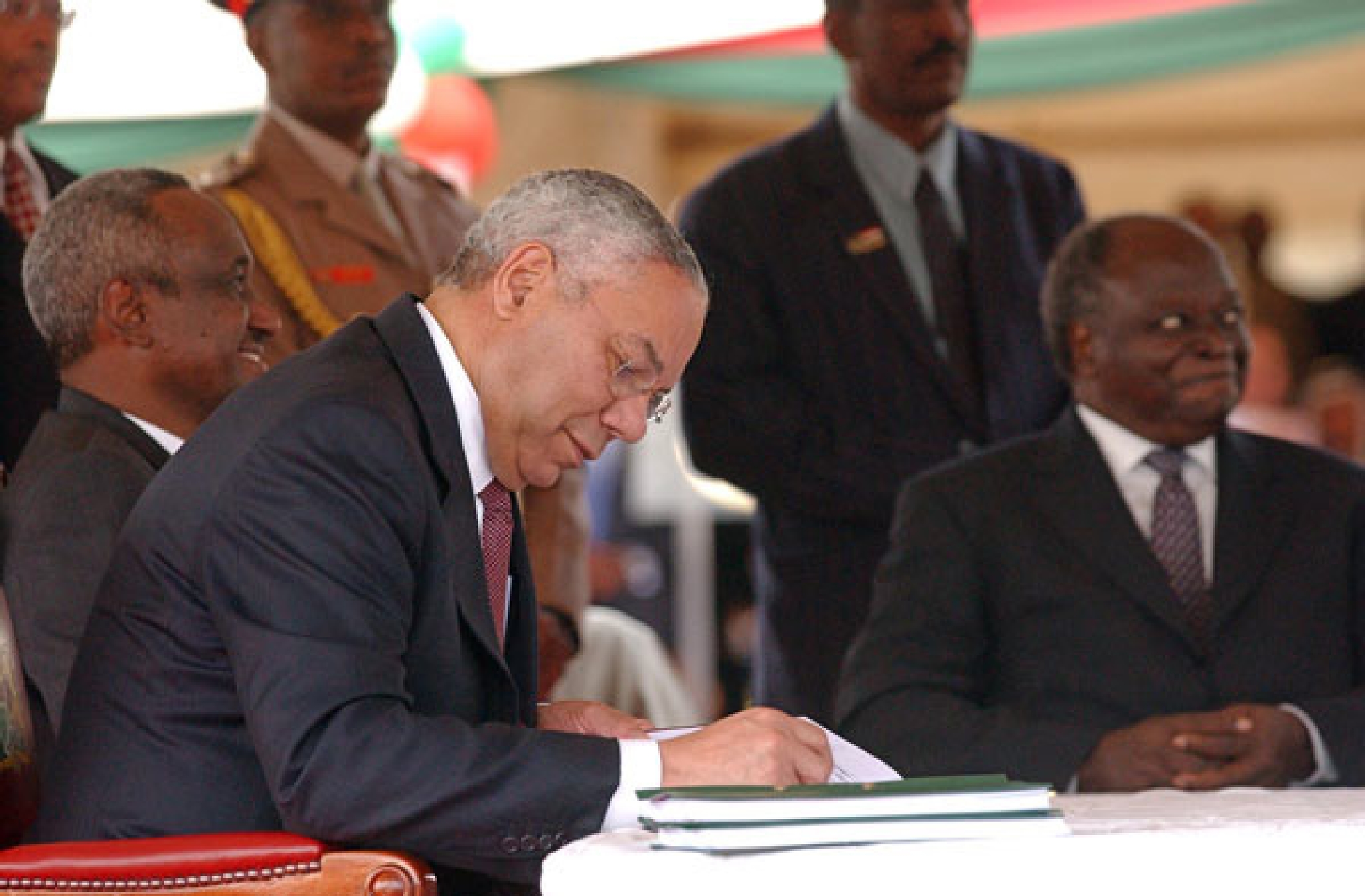
Perhaps one of the biggest current bones of contention in the Sudan is the separation of South Sudan after the Comprehensive Peace Agreement of 2005 (CPA). It is the viewpoint of many, Ghazi included, that Sudan gave in to the pressures of the international community and got nothing in return. Although Ghazi has severely criticized the agreements that have come about over the past decade, he was nevertheless the leader who achieved the landmark 2002 Machakos protocols, which outlined the steps that the parties needed to complete to reach the CPA. In spite of this achievement for peace, when Ghazi was later in charge of the Darfur portfolio and negotiations, one headline in the Sudan Tribune described him as a “jihadist” longing for war. Many descriptions might fit Ghazi, but this is not a particularly accurate one.
As in a marriage, no one knows what goes on behind the scenes in a peace negotiation, and like most history, telling it is almost always at least a little revisionist. Negotiations for the protocols signed in Machakos, Kenya, were made behind closed doors (much like those in Naivasha, Kenya, where the final CPA was signed in 2005). Ghazi Salahuddin Atabani and Ali Osman Mohamed Taha represented the Sudanese government in the talks. Both men were, to be expected, under pressure from a wide array of sources — to reach agreements, to forward certain agendas, to follow their own consciences, and to conform to international norms. Ghazi is not normally one to pay attention to omens, but when he arrived in the town of Machakos — its name an Arabic term for someone who is argumentative or quarrelsome — the first building he saw was a morgue. He felt uneasy about it all, but tried his best to broker a good agreement, one he is quite proud of. In his mind, the deal resolved the religion/sharia issue in a way that was acceptable to the south and was based on a principle that called on both parties to use their resources for unity. He thought that Naivasha was a scandalous agreement that distorted Machakos: “It is not good enough to say you have a peace agreement; you have to have a good one.” Naivasha gave away one-third of the land, he says, and there is still no peace. The border areas are not resolved, and Sudan still remains a world pariah with no relief from sanctions and still on the U.S. “state sponsors of terrorism” list.
Even though Ghazi was no longer acting as President Bashir’s adviser, after he saw the security agreement for Naivasha, he personally told Bashir that he should not sign the treaty as it was obvious that they would get nothing. They should assume that the south was going to separate anyway and make a deal with the West; they should tell the West that the south can go immediately, but only on the condition that the border disputes, the debt, and all of the other outstanding issues be resolved first. But Ghazi’s lobbying was trumped by a more persuasive phone call that Bashir had received: one from President George W. Bush, who held more sway. Bashir followed Bush’s nudge and agreed to sign.
Many of Sudan’s northerners believe that Bashir made the wrong choice. Despite what some have claimed, his advisers did not deceive him; according to Ghazi, Bashir had all of the relevant information at his disposal. Diplomats, aid workers, and academics who had spent a lot of time in Sudan predicted what would happen in the south after the division of the country. Those predictions proved true. At the time, anti-north Sudan sentiment and the acrimony of the south held sway as unifying factors; after the split, neither existed. All of the old issues — tribalism, lack of viable institutions, and the struggle for power and money — floated up to the top through the justified flotsam of resentment from oppression.
Now, the international community is much savvier than it was on issues concerning the south prior to the split in 2011 and the civil war that has been ongoing since 2013. Ghazi admits that nowhere is it written in any agreement that the United States would lift sanctions after Sudan signed the CPA, but Madeleine Albright, Colin Powell, Susan Rice, and Senator John Danforth had all verbally promised that it would happen. When President Bush phoned Bashir and encouraged him to make the final concessions ahead of the agreement, Bashir was convinced that the United States would honor its verbal agreements. Ghazi likens Naivasha to the post–World War I Treaty of Versailles, where the Germans were so humiliated that their defeat set the tone for the Second World War. Abyei is our Kashmir, he says, drawing a comparison with another disputed region that has seen repeated outbreaks of violence.
Democracy is essential to modernity. In this sense, Islamism is not only compatible with democracy; it requires it.
Though Ghazi is considered an Islamist, he does not like the term. “You don’t say Christian and Christianists,” he says. (With regard to Christians, perhaps “fundamentalist” is a term more akin to “Islamist.”) Ghazi makes a distinction: whereas Christian fundamentalism arose from modern society and is driven by a quest to restore old-fashioned Christian values, Ghazi’s Islamist views were informed by a struggle over how to best make Islam relevant to modern society. Democracy is essential to modernity. In this sense, Islamism is not only compatible with democracy; it requires it. Ghazi believes that it is obvious that the democratic political system is working, regardless of the banal criticism from some Islamists over “lax morality” in the West.
Historically, Muslims have focused on strong individual leaders — kings and caliphs — and whether or not they ruled justly and well. In modern times, justice has to be part of an institution that is not subject to the whims of personalities. Sudan’s basic justice system was established during British rule, and had a solid tradition based on a mixture of modern European law and sharia. Arguably, this is why Sudan still has some functioning institutions, and why it has not imploded like South Sudan has.
Though Ghazi is reluctant to personally criticize any of his public figure counterparts or opponents, he himself does not claim perfection, and says that a person or a government limits itself if it cannot admit to faults and produce new ideas. He is not reluctant to publicly criticize his and his country’s policies and decisions — and not just criticize, but also outline an alternative for how something should have been done, as he did in his 2015 speech at Chatham House and multiple articles in Arabic and English. He believes that those who govern and are governed have a moral responsibility for self-criticism and reevaluation, and that this should be done without fear of the government and without equivocation.
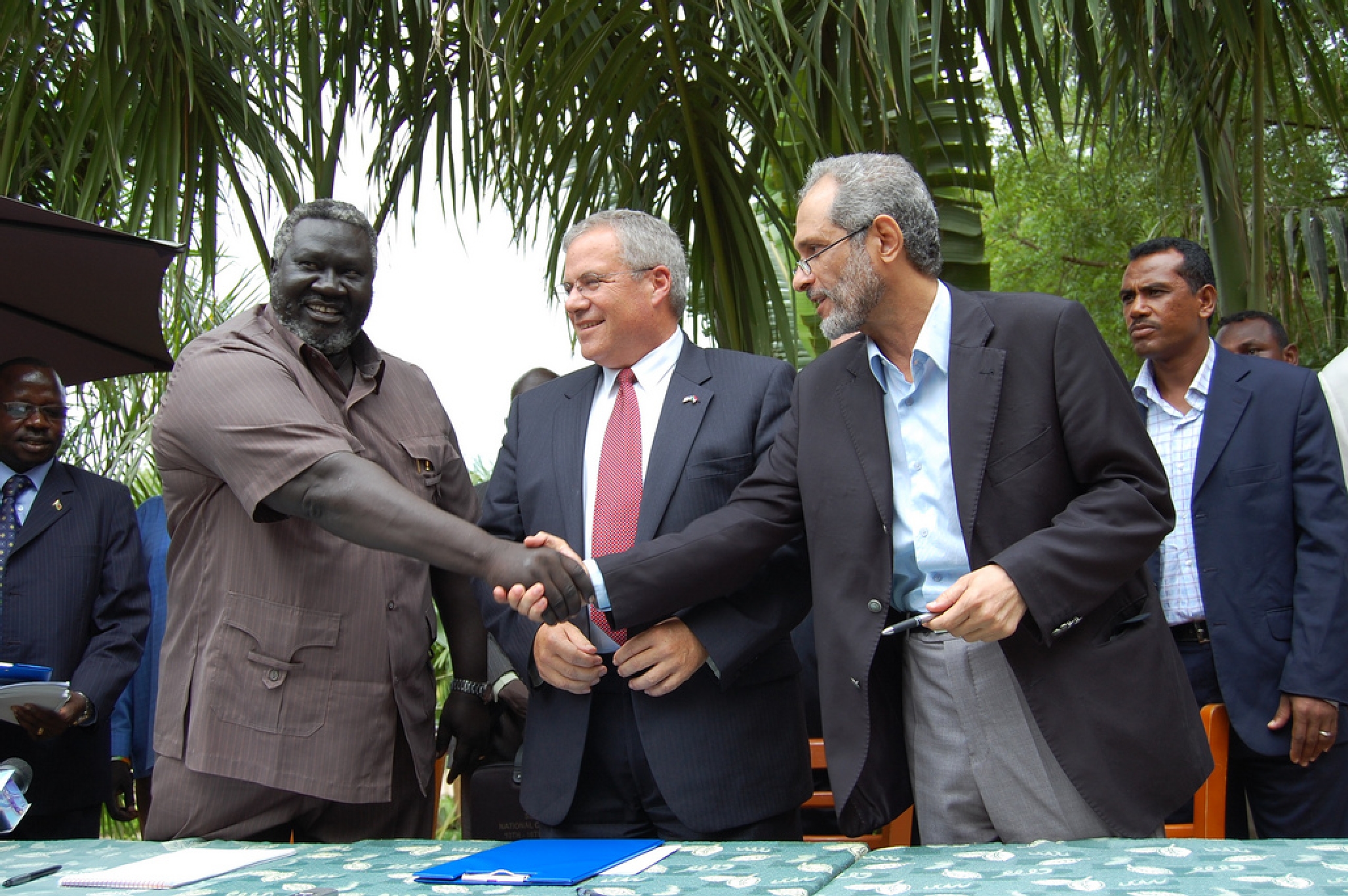
Unsurprisingly, this perspective has made Ghazi a target for criticism and further outlandish claims such as the article in the Sudan Tribune accusing him of being a former mujahedeen fighter in Afghanistan and another calling him the “stealth spoiler of peace in Darfur.” Though the mujahedeen in Afghanistan fought with the West against the “godless” Soviets — making the charge salient — the group was later accused of being a pawn of the West. Nevertheless, the current damning implication is that Ghazi was a militant jihadist. In reality, Ghazi has never been to Afghanistan.
Though he never went to Afghanistan, Ghazi was a part of at least one fight on the ground in his own country. In 1976, a force of mostly Ansar (1,000 Mahdists) supported by the Ikhwan (numbered at only 33, including Ghazi), took over the military garrisons in Khartoum and seized power for a few hours. Ghazi was a part of the Sudanese National Front, which had received military training in Libya and tried to take back the government from Gaafar Nimeiri’s “communist” dictatorship, and he was an active part of the Muslim Brotherhood’s National Islamic Front. There are still questions to be answered as to what his part was exactly, in many of the government operations, as well as what his position is on Hamas. He says that all governments, including Sudan’s, employ coercive techniques. If he were an elected official, Ghazi says that he is unsure if he would do the same, though he clarified that statement, saying “I do not believe in an oppressive state.”
In the past few years, Ghazi’s criticism of Bashir’s regime has had him on the outside looking in. In the media, Ghazi opposed Bashir’s heavy-handed response to the September 2013 uprisings that erupted after the government lifted the fuel subsidies, resulting in the death of hundreds of protestors. That position landed him outside the party. Even more recently, Bashir personally banned Ghazi from participating in the November 2015 national dialogue talks in Addis Ababa.
Ghazi maintained contact with Turabi over the years between his ousting from the government and his death in March 2016; and as recently as last year, Bashir was spending a considerable amount of time at Turabi’s home participating in evening prayers with him. In Sudan, popular opinions of Turabi range from reverence as a spiritual sheikh to revulsion at an evil man whom some blame for sending the country on the road to ruin. At his funeral, masses of mourners blocked the streets of Khartoum to commemorate the controversial cleric. “We may not have disagreed with Turabi on the religious ideas side,” Ghazi reported, “but the application to the state, how he treated the state — the role of a backseat driver — was unacceptable. We thought that was contrary to the dictates of Islam and to the interests of the group and to the country. It was in his grips at that time. … I emphasized modernity in the way we viewed democracy, we thought the rule of law was very much Islamic and in the traditions of the prophet.” Before his death, when asked if the country was again in Turabi’s grips, Ghazi said, “No, it is not and it won’t be.” At one time, Turabi and the Islamic Movement may have controlled Bashir, but now, says Ghazi, Bashir is and was in complete control even before Turabi’s death.
Because of lack of unanimity among the opposition and lack of participation in the national dialogue, the consultation that started in 2014 has thus far ended up being a charade, whether by design or default. From Ghazi’s perch, forward movement in Sudan’s current climate must find common ground and strive to be incremental. This is an opportunity to be seized; pressure for change could be possible through external interaction and through the vote, but the money that the opposition parties have is infinitesimal compared to the absolute control of goods and power by the ruling party.
This precarious balance brings to mind Sudan’s 1964 October revolution, where it had been difficult to synchronize the opposition parties; the military regime thus had remained in power for a long time. In his early years, Turabi preached consultation and participation, and later acted as a type of mediator, trying to bring fractious groups together in opposition to the military dictator. He wanted his faction to be a kind of pressure mechanism, similar to what Ghazi envisions about his new movement. But what will be the difference this time? The opposition groups have not banded together, and the rest of the population rests complacent, complaining in their gardens.
When asked if his thoughts on Islam and revivalism have evolved, Ghazi does not waver. “My ideas of revivalism and Islam have not changed. I believe it is central to a Muslim … it is about compassion, dialogue with other civilizations, and inspiration — and a unique relationship with God.”
To the next question — Is that reflected in other religions? — he replied, “Yes, of course.”
* * *
Marie Besançon is a research fellow at the University of Khartoum and an associate professor at Portland State University. She founded a nonprofit organization aimed at low-cost housing in Sudan, and has traveled and worked extensively in the region since 2005.
Cover photo courtesy of Flickr/Arian Zwegers
Note: Unless otherwise indicated, information and opinions were gleaned from multiple interviews and exchanges with Dr. Ghazi and were his perspectives. Some general information was amassed from garden conversations over several years with officials, ministers, and business people in Sudan since 2005, and long conversations with some of the elder Muslim Brothers and elder statesmen.
